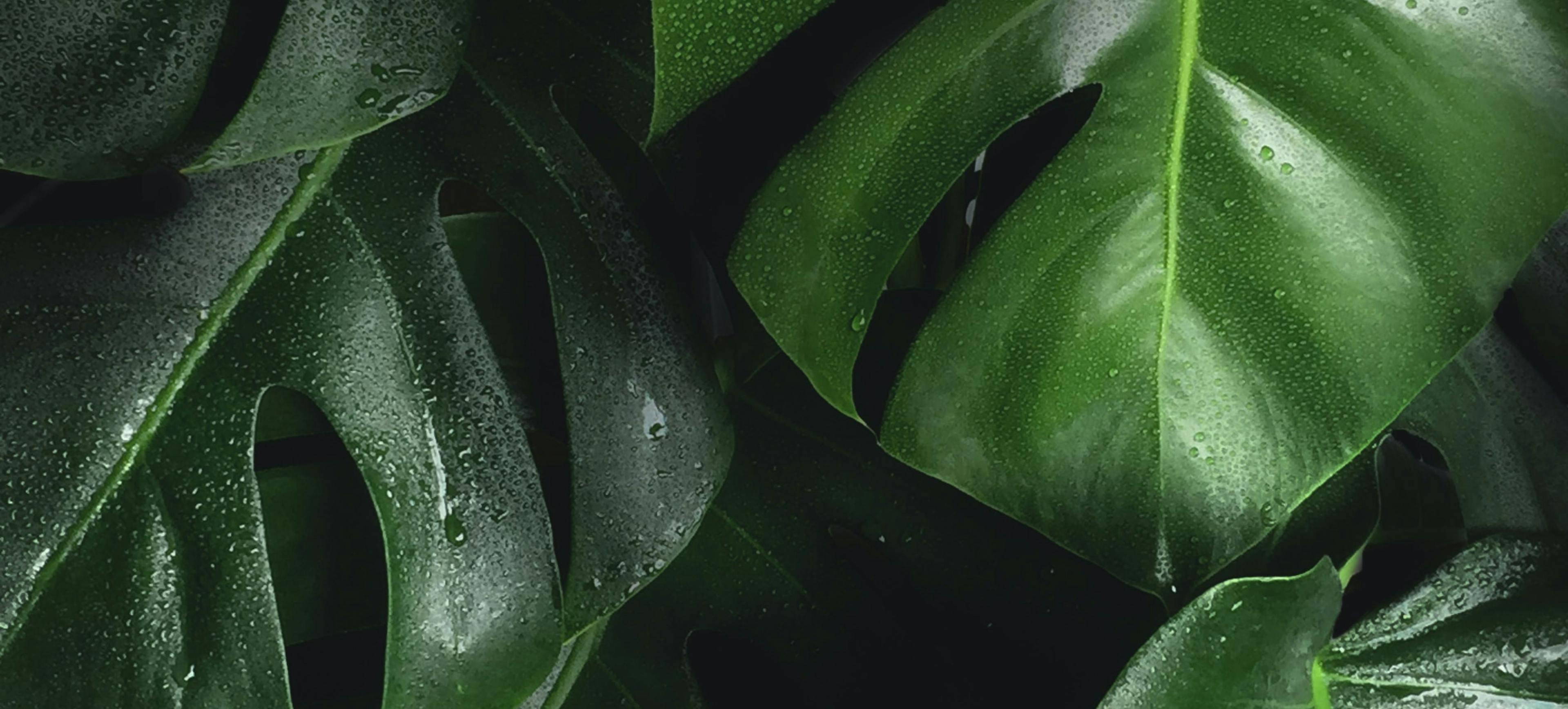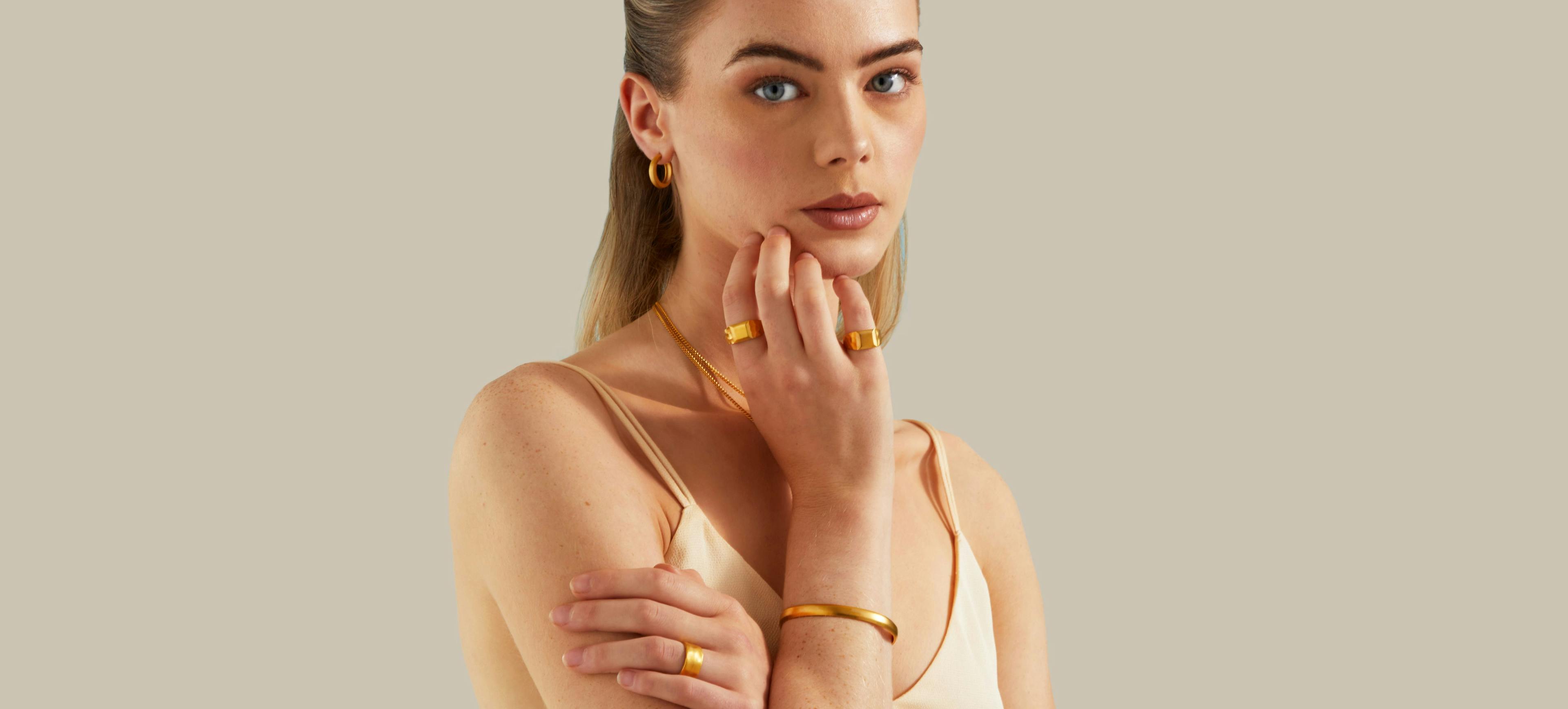In 2022, we’re becoming more conscious consumers and changing our buying habits for the better. Fast fashion is over, longevity is key, and ethical and sustainable jewellery is becoming the new norm.
However, defining and sticking with this concept can be a little tricky. How do you know what makes jewellery ethical or sustainable to start with? Where can you buy it? And how can you ensure you’re investing in something beautiful – for yourself and the planet?
What is ethical and sustainable jewellery?
In short, ethical and sustainable jewellery aims to minimise the broader impacts of its production. While definitions of sustainability vary along with the approaches taken by the jewellery industry, efforts are mainly focused in the environmental and social spaces. This means the process of making it doesn’t endanger people or the earth.
Protecting the Earth
The term sustainable jewellery has wide-reaching implications. To be less environmentally impactful, the jewellery you buy must avoid two things.
First, it must not be a drain on natural resources. This poses a challenge, as most fine jewellery is made from scarce materials, hence why it's considered precious. Gemstones, diamonds, gold, and platinum are all limited resources. To overcome this scarcity dilemma, sustainable jewellery is often made from recycled materials.
Second, environmentally friendly jewellery must not create excess waste or negatively impact ecosystems during its production. For example, certain mining companies using non-sustainable practices remove 200 to 400 million times the volume of rock to get at their desired product.
Unless appropriately managed, the mining of precious metals and gemstones can lead to environmental damage like acid rock drainage. This, in turn, threatens animals and plants by changing the PH levels of nearby bodies of water.
For this reason, sustainably-minded jewellers must consider where and how the materials they use are sourced.
Worker and local community welfare
When considering sustainable jewellery practices, the discussion must also revolve around the welfare of people involved with or impacted by its production.
Precious metals and gemstone mining has historically been associated in some countries with exploitation and conflict. This feels like such a contradiction. After all, we wear jewellery to look and feel beautiful. Shouldn’t the production process be just as attractive?
To protect people, sustainable jewellery uses precious metals and gemstones sourced from ethical mines. This means the mining companies offer workers fair pay, safe working conditions, and welfare protections. The use of conflict-free diamonds and ethically-sourced materials is a good indicator that you are purchasing sustainable treasures.
Lastly, ethical and sustainable jewellery considers its impact on the Earth as a whole. Jewellers may offset their carbon footprint or work with mines that run on renewable energy. They may also use lab-grown gemstones and recycled metals to reduce carbon emissions.
Carbon-neutral jewellery is beneficial for everyone; it helps limit climate change so that your precious pieces can be passed down for generations to come.
What is best practice when it comes to ethical and sustainable jewellery?
When you purchase sustainable and ethical jewellery, you’re purchasing pieces that have followed ethical practices throughout their journey. That means a consciously eco-friendly process all the way from the mine to the minute you begin wearing them.
As jewellery producers, we are accountable for every step of that journey. Here are some things we consider at each important stage.
Source materials ethically
The first thing to consider when producing or purchasing ethical jewellery is where the raw materials are sourced.
While gold is mined across the world, mining conditions and miners’ pay can vary wildly. If you want to buy a product that respects workers’ rights, look for fair trade jewellery. As the name suggests, fair trade jewellery guarantees several essential conditions for workers, including:
- Health and safety policies. These include precautions for handling chemicals and environmental protection.
- Minimum price. Fair trade jewellery mines receive a guaranteed minimum price for their gold, plus a social grant on top. They use this extra payment to improve local communities and businesses.
- Child protection policy. No gold mine can produce fair trade jewellery without a certified child protection policy in place. This protects against child labour and exploitation.
- Documentation. Fairtrade gold mines must document all transactions between themselves and jewellers. This means you can rest assured your gold comes from a socially and environmentally responsible source.
Aside from workers’ rights, ethical jewellery should also respect the environment in which it is made.
Did you know a single wedding ring can produce up to 20,000 kg of waste before it reaches your finger? To decrease this waste, mines must also act as land stewards. Commitments here include biodiversity conservation, reducing water consumption and providing new water sources to areas impacted by mining.
To meet these best practice obligations and give you the opportunity to enjoy guilt-free, beautiful jewellery, we’re committed to sourcing our materials from ethical mines. Our aim is to mend the disconnect between the jewellery industry and the planet. To do this, we at 7879 only use recycled gold or sustainably-mined platinum, which helps us uphold our high ethical standards.
Provide transparency and traceability
To make sure our jewellery comes from a good place, we also provide you with transparency.
Being transparent allows you to see our commitment to sustainability. Best practices in this department include code of conduct agreements. These ensure living wages, safe working environments, and support for equality and diversity rights.
As we only use recycled or responsibly mined materials to create ethical gold jewellery, we’re proud to say that you can invest in a 7879 piece without compromising your values or ethics.
By working with Anglo American and other responsible partners, we know exactly where our materials come from and how miners benefit directly.
Commit to eco-friendly transportation
Once the raw materials leave the mines, the next step is to forge them into mesmerising pieces that retain their value. This step is one of the most important, and it’s also where sustainable jewellery practices come into play.
Between mines and market, raw materials may travel miles. This is unavoidable as precious metals and gemstones can only be sourced in certain parts of the globe. In addition, high-quality artisans are also in limited supply.
To offset these problems and provide you with eco-friendly jewellery, we pledge to reduce our carbon footprint. Traditionally, a gram of mined gold is responsible for 36kg of carbon emissions. In contrast, our recycled gold jewellery shrinks that footprint to 2% of regular emissions.
Our packaging is also plastic free and recyclable, leaving you with eco-friendly jewellery that shines in more ways than one.
Use professional and fair craftspeople
While jewellers in highly developed countries are more likely to receive fair pay and working conditions, we think that should be so everywhere. Every professional craftsperson across the globe should be entitled to ethical employment that guarantees a comfortable living.
We understand that jewellery isn’t a necessity, yet it supports the lives of millions of people. The jewellery industry not only provides countless jobs but gives skilled craftsmen an invaluable creative output and a sense of pride. In short, jewellery is an art. We strive to protect those artists who make such exquisite objects.
We work to ensure our jewellery is a labour of love, not exploitation. All of our professional craftspeople are given fair employment conditions and compensation. This results in ethical jewellery made with passion and care.
Give good aftercare
Finally, sustainable and ethical jewellery production should consider the whole lifecycle of the piece. That’s why our best practices don’t stop after purchase.
At 7879, we strive to make fine jewellery created with love and thought. We want you to carry these values with you as you wear our pieces. To encourage these ideas, we not only offer excellent customer support and a lifetime warranty, but we also promote a circular economy.
A circular economy involves sharing, reusing, reselling, and recycling existing materials. Although we’re sure you’ll treasure your 7879 jewellery, we also offer you the opportunity to sell your ethical jewellery back to us or to trade up for another piece. If you do decide to sell back, we melt down this jewellery and recycle the metal into another wearable piece.
With this service, we aim to put a stop to overconsumption. At the end of the day, ethical jewellery is about quality over quantity. Nothing says quality like pure platinum and 24 karat gold jewellery, but we’re also aware that both personal preferences and circumstances change.
With our unique resale / buy-back initiative, you don’t need to worry about how or where to sell your fine jewellery. You can simply wear it, appreciate it, and contribute to maintaining an ethical jewellery industry.
As you can see, producing ethical and sustainable jewellery is not simple, but we believe it must be at the forefront of the industry. We create pieces to stand the test of time, which plays a small part in ensuring our planet can, too. We’re proud to be a part of this change.
Every 7879 piece starts with recycled or responsibly-mined gold and platinum. You have the power to continue this cycle. Learn more about investing in our jewellery, or purchase an ethical and sustainable piece now.

